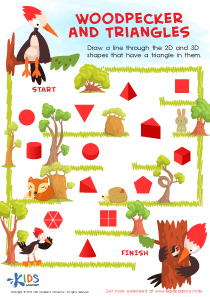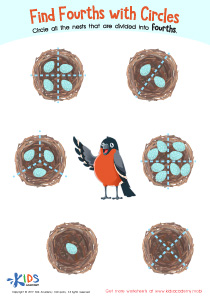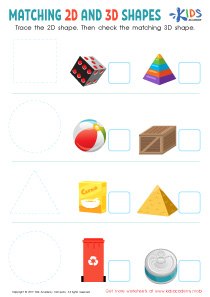Extra Challenge Area and Perimeter Worksheets for Ages 5-8
5 filtered results
-
From - To
Take learning to the next level with our "Extra Challenge Area and Perimeter Worksheets for Ages 5-8"! Designed for young learners ready to advance in their math skills, these worksheets provide fun, engaging activities that help children grasp important concepts of area and perimeter. Each page is thoughtfully crafted to challenge kids through problem-solving and critical thinking exercises, helping solidify their understanding while keeping them entertained. Perfect for both classroom and home use, these printable worksheets come with detailed answer keys, ensuring youngsters can learn at their own pace and gain confidence in their math abilities.
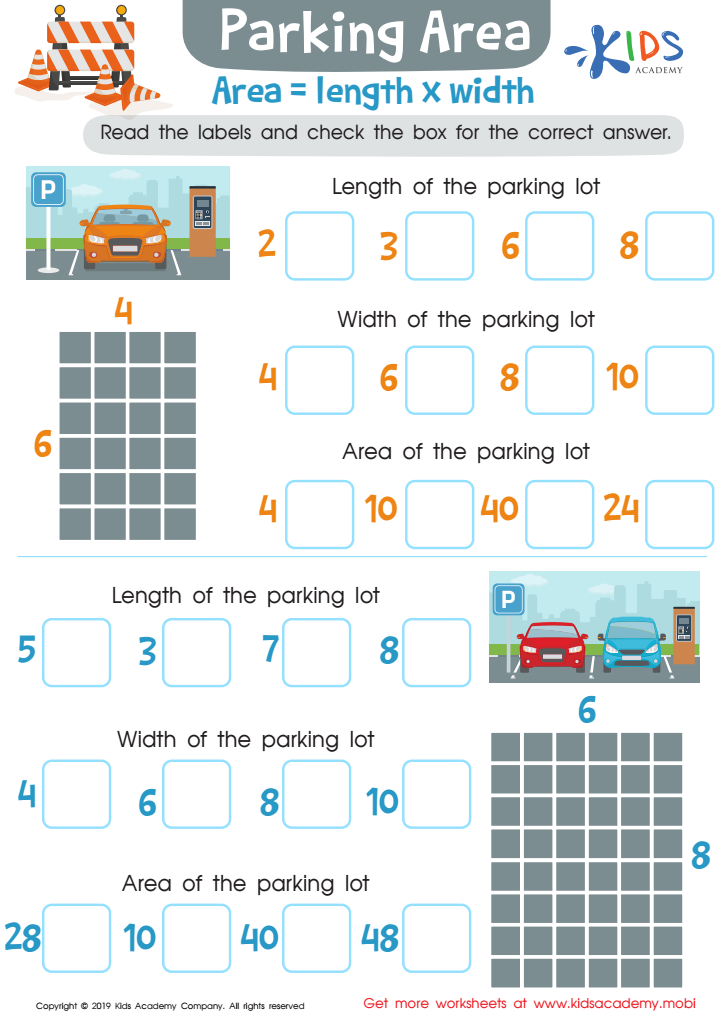

Parking Area Worksheet
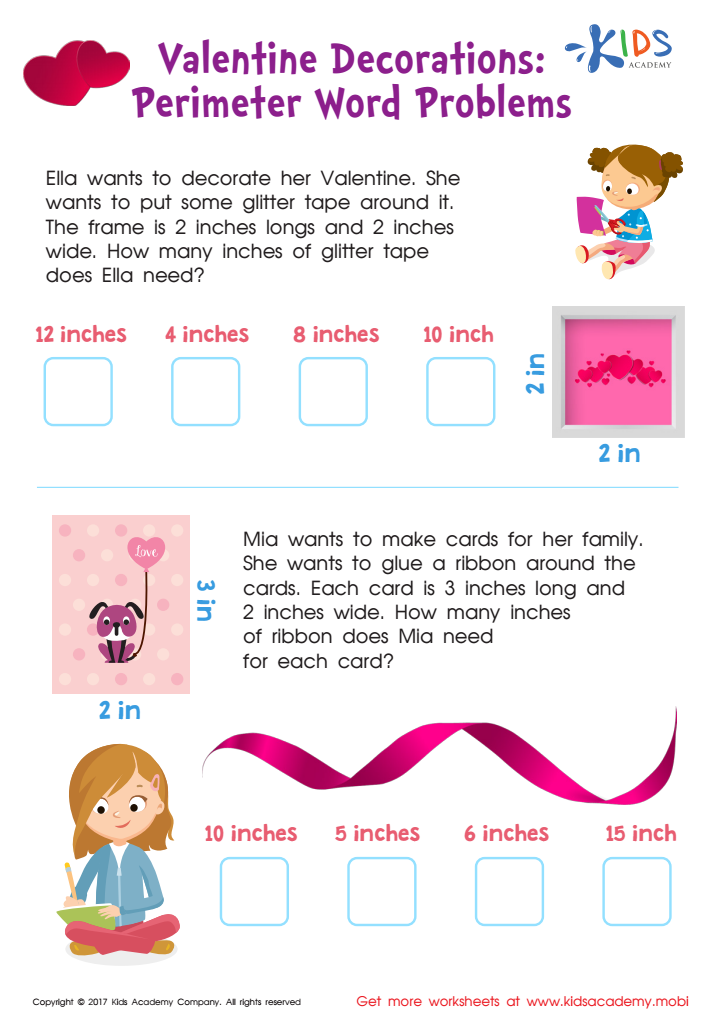

Perimeter Word Problems Worksheet
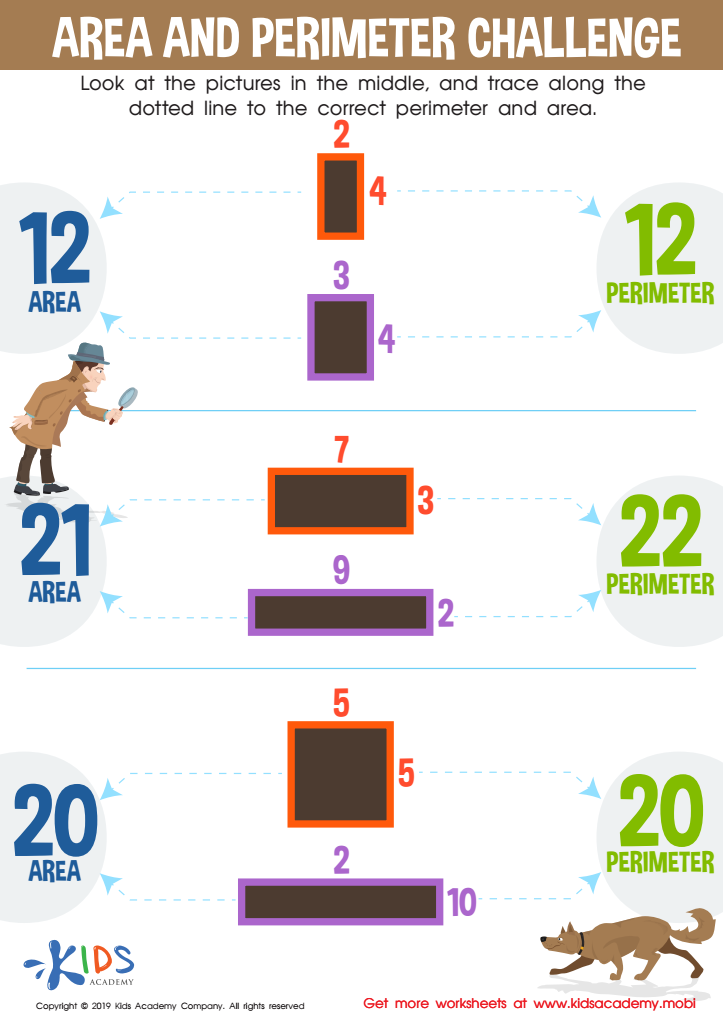

Area and Perimeter Challenge Worksheet
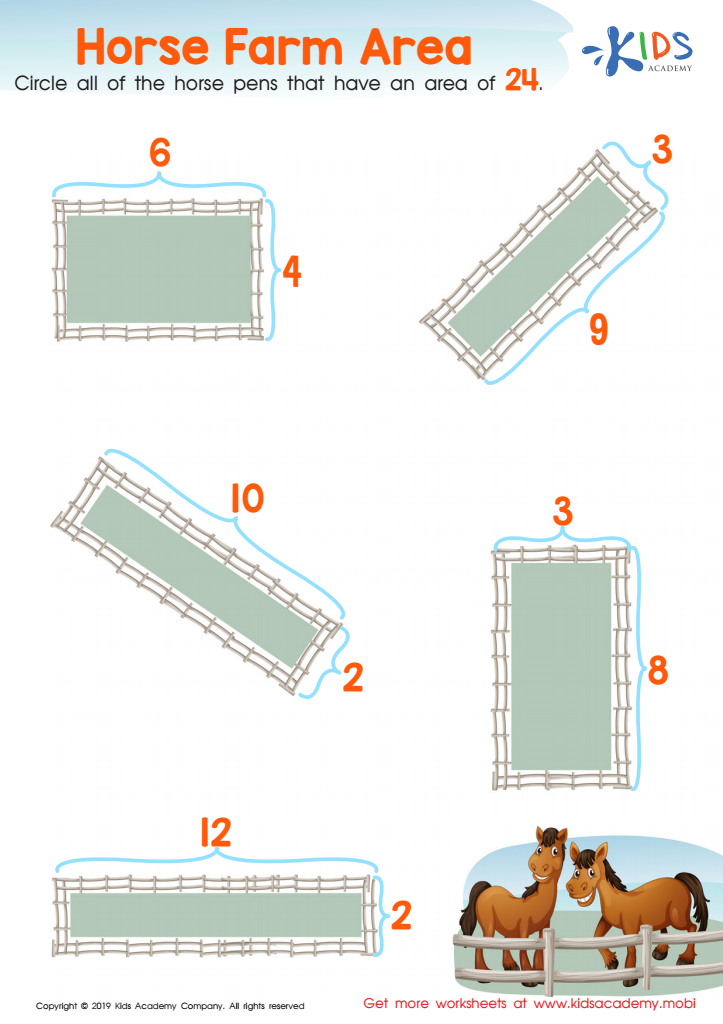

Horse Farm Area Worksheet
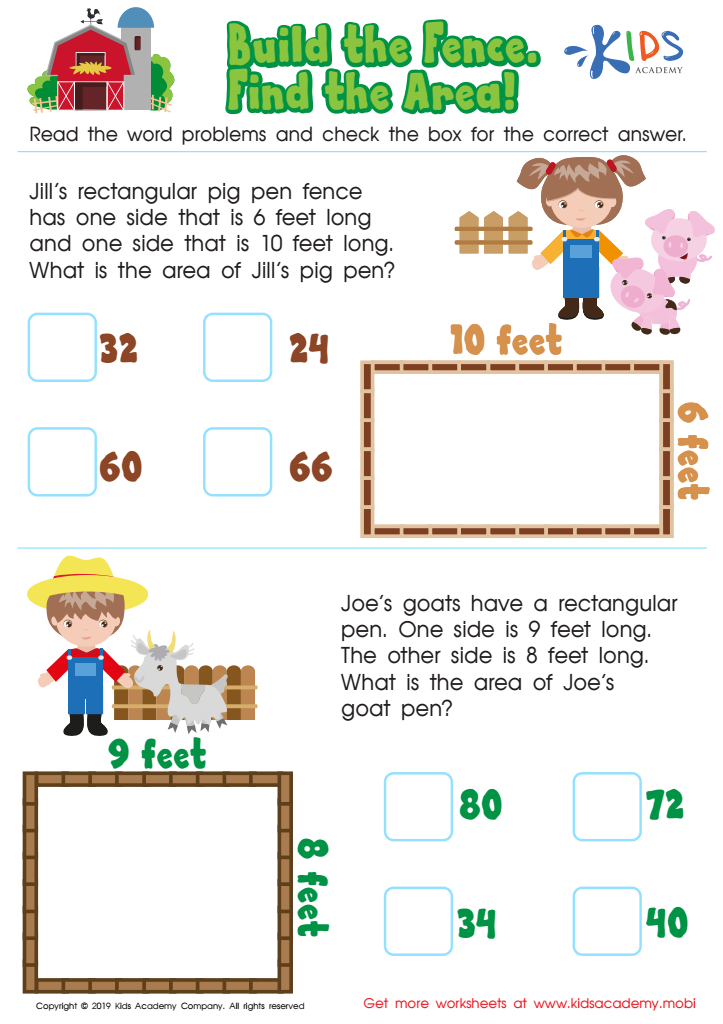

Build the Fence, Find the Area Worksheet
Introducing young children to challenging concepts like area and perimeter is crucial as it sets a strong foundation for their future mathematical learning. At ages 5-8, children are curious and capable of understanding basic geometric concepts through engaging and hands-on activities. Learning area and perimeter enhances their spatial understanding and problem-solving skills, which are essential not only in math but in everyday life.
By engaging with area and perimeter challenges, kids can improve their ability to visualize shapes, comprehend the relationships between different geometrical figures, and develop their logical thinking. Activities surrounding these concepts can also reinforce their numerical skills, as they practice measuring lengths and calculating results. This arithmetic practice helps in building a robust number sense, which is fundamental for more complex mathematical operations they will encounter later on.
Teachers and parents should recognize the importance of instilling these concepts early, as it promotes confidence and interest in math. Ensuring these young learners find math enjoyable and approachable can offset any future anxiety towards the subject. Furthermore, these extra challenges foster perseverance and critical thinking, creating a positive attitude towards tackling difficult problems, a trait valuable across all areas of study and life. By caring about these extra challenges, educators and parents can make learning a well-rounded and enriching experience for children.

 Assign to My Students
Assign to My Students










